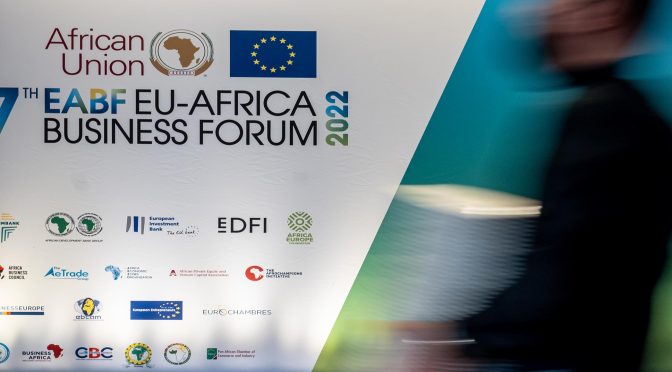At the recent EU-Africa Business Forum in Brussels RES4Africa Foundation President and Enel Green Power CEO Salvatore Bernabei talked about what needs to be done in order to attract private investors and accelerate the energy transition in Africa.
The 7th EU-Africa Business Forum (EABF22), was held in Brussels in a hybrid format on February 16 and 17. It was part of Africa-Europe Week and the African Union-European Union Summit, which produced agreements and commitments on a broad range of issues, including sustainable energy. The Forum also featured a high-level panel on “Energy for industry and productive use: from large to small enterprises.” The speakers included Salvatore Bernabei, who was there in his capacity as President of the RES4Africa Foundation and CEO of Enel Green Power. The discussion focused on what needs to be done in order to attract private investment to sustainable energy systems in Africa.
Renewable Energy Solutions for Africa
This is also the mission of the RES4Africa Foundation, which set up a special renewAfrica initiative in 2019, with the support of 27 organizations, including Enel Green Power. The initiative advocates the creation of an EU-led program to support investment in renewables in Africa, covering all renewable energy technologies, infrastructure and grids. In 2018, prior to the setting up of renewAfrica, the RES4Africa Foundation conducted a study with PwC to assess market gaps. It identified more than 75 European financing instruments supporting renewables in Africa, and analyzed 17 of them in depth. It discovered that only 35% of the 75 instruments offered support for utility-scale renewable energy projects.
RES4Africa firmly believes that the European Commission, the European Investment Bank and other Development Finance Institutions need to create and approve a new financial instrument that can deliver. It doesn’t call for the creation of brand-new instruments, but would rather consolidate the existing ones under one umbrella and enhance them in specific areas where improvements are needed.
“We identify what is required in order to unlock stable and sound energy policies that will enable long-term investment planning for the private sector. This is a vital issue and one that can encourage adequate resource management and the development of more competitive bidding strategies.”
Salvatore Bernabei, President of the RES4Africa Foundation
Potential investors are also hampered by the situation in Africa itself. As Bernabei pointed out, they are often reluctant when they face problems related to market structure, coordination, regulations, transparency, legal issues and a volatile political situation. He argued that network development in Africa needs to be more credible, and that the extension, reinforcement and modernization of electricity grids are essential for the expansion of access to electricity in Africa and the improvement in the quality of service. These factors, together with battery storage and grid digitalization, are necessary in order to bring about a successful energy transition.
Africa’s immense potential
The economic relationship between the EU and Africa is, however, promising. The Forum was held only a few days after the announcement made by the President of the European Commission, Ursula Von der Leyen, during the course of a visit to Senegal, that the EU plans to provide African nations with more than €150 billion in funding. Nevertheless, a lot of work still needs to be done in order to make sure that renewable energy and other initiatives can help unleash Africa’s immense potential, and improve the quality of life of its more than 1.2 billion inhabitants.


